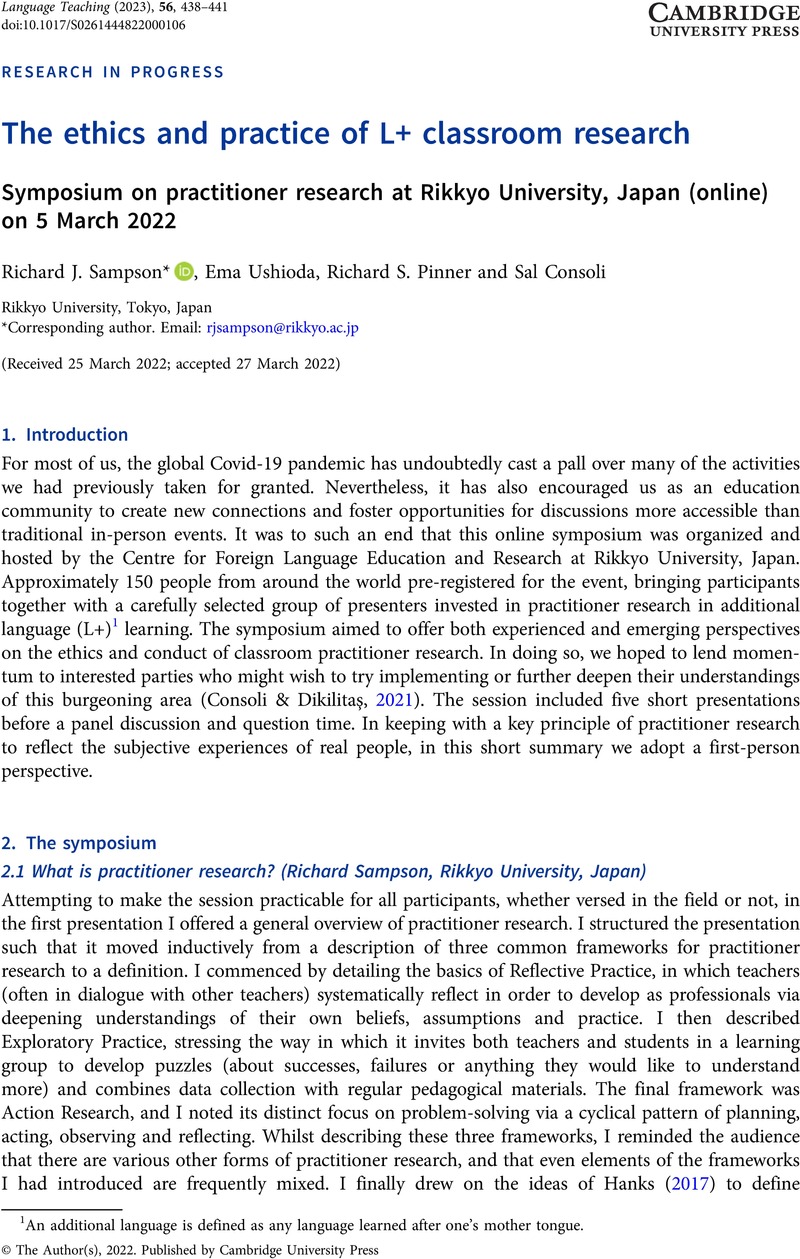Crossref Citations
This article has been cited by the following publications. This list is generated based on data provided by Crossref.
Banegas, Darío Luis
and
Consoli, Sal
2024.
Practitioner research in education: A call for a reality check.
International Journal of Research & Method in Education,
p.
1.




